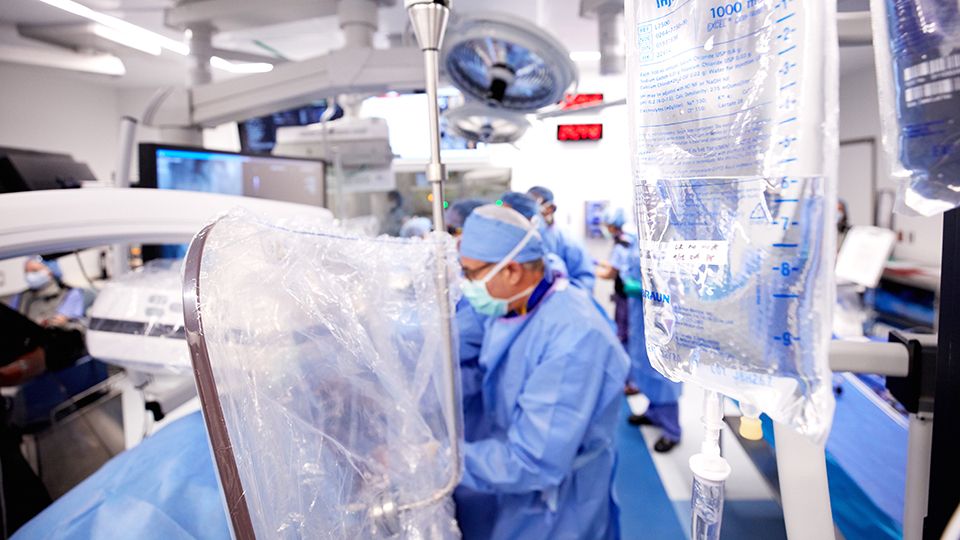Diagnosis & Treatment of Heart Valve Disease
At NYU Langone’s Heart Valve Center, you receive personalized care based on your individual needs. Our team includes doctors who specialize in different types of valve repair and replacement techniques, which means you receive the treatment that is best suited to your individual medical condition.
To learn more about the care experience at the Heart Valve Center, read our patient stories.

Your First Appointment
Most of the time, we can ensure that all necessary tests are completed by the day of your initial visit. Our heart valve doctors review your records, and at your appointment, we discuss your treatment options. During your visit, you may also meet with other specialists based on your individual needs such as geriatric cardiologists, physical therapists, nutritionists, or research specialists.
We understand that deciding among the variety of treatment options for heart valve disease may feel overwhelming for patients and their families. We provide you and your family with the information you need to make an informed decision.
Diagnostic Testing for Heart Valve Disease
We offer multiple tests at the Heart Valve Center to diagnose aortic valve disease and diagnose mitral valve disease. They include the following:
- echocardiogram, in which ultrasound is used to show how your heart and its valves are working
- cardiac catheterization, in which a long, thin, narrow tube is used to look for blockages in the arteries
- cardiac CT scan, in which X-ray imaging is used to view your heart and blood vessels
- electrocardiogram, known as an EKG, which analyzes your heart’s electrical activity
Echocardiograms are performed at NYU Langone’s noninvasive cardiac imaging and testing team, which is led by Dr. Muhamed Saric, a world-renowned expert in this field.
Treatments for Aortic Valve Disease
Aortic valve disease includes aortic valve stenosis and aortic valve regurgitation. We offer many treatment options for aortic valve disease, including the following:
- watchful waiting, recommended for people with mild forms of the condition with few or no symptoms
- transcatheter procedures such as transcatheter aortic valve replacement (TAVR) and aortic balloon valvuloplasty, which are provided by doctors at our Transcatheter Heart Valve Program
- minimally invasive aortic valve replacement surgery
- open heart surgery for aortic valve replacement or aortic root replacement
Treatments for Mitral Valve Disease
Mitral valve disease includes mitral valve regurgitation and mitral valve stenosis. We offer many treatment options for mitral valve disease, including the following:
- transcatheter procedures such as transcatheter mitral valve repair with MitraClip®, transcatheter mitral valve replacement, and mitral balloon valvuloplasty, which are provided by doctors at our Transcatheter Heart Valve Program
- robotic mitral valve repair, which is performed through five small pencil-sized incisions in the chest wall between the ribs and is provided by doctors at our Mitral Valve Repair Program
- minimally invasive mitral valve repair that involves a small incision on the right side of the chest, which is also provided by doctors at our Mitral Valve Repair Program
Recovery from Heart Valve Disease Treatment
Recovery time following a heart valve disease procedure depends on the type of treatment used and your overall health. Transcatheter techniques generally require a one-night hospital stay, while open heart procedures can require a two- to four-day hospital stay.